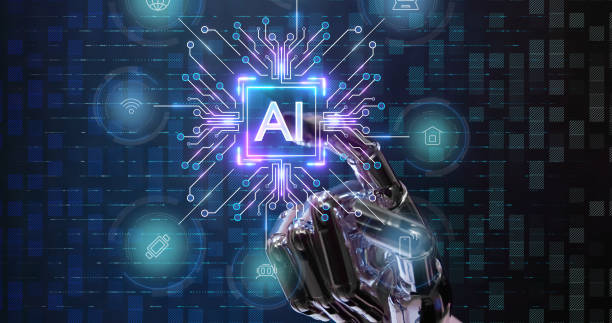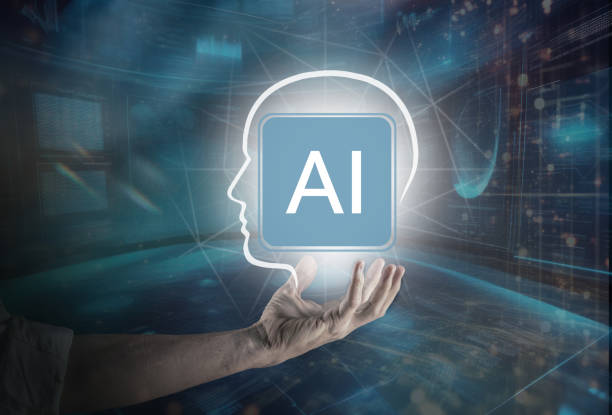What is an AI Assistant? Definition, History, and Types
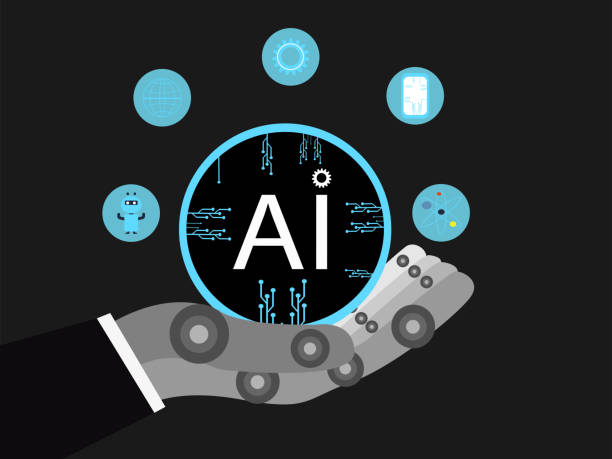
#AI_Assistant is a software or computer system designed to help users perform various tasks.
These tasks can include answering questions, providing suggestions, performing calculations, controlling devices, managing information, and more.
AI assistants use various artificial intelligence techniques such as Natural Language Processing (NLP), Machine Learning, and Automated Reasoning to understand and respond to user requests.
The history of these assistants goes back decades, but recent advances in AI, particularly in the field of deep learning, have made these assistants significantly more advanced and efficient.
Some common types of AI assistants include:
- Virtual Assistants such as Siri, Google Assistant, and Alexa that run on smart devices such as mobile phones, tablets, and smart speakers.
- Chatbots that are used on websites and messaging applications to provide customer service, answer frequently asked questions, and provide information.
- Enterprise AI Assistants that are used to help employees perform administrative tasks, manage projects, and provide technical support.
- Specialized AI Assistants designed for specific applications such as medicine, finance, and law.
AI Assistants are rapidly becoming an essential part of our daily lives, and they are expected to play an even more important role in the future.
Does your current website convert visitors into customers or scare them away? Solve this problem forever with professional corporate website design by Rasaweb!
✅ Create a powerful brand and reputation
✅ Attract target customers and increase sales
⚡ Get a free consultation now!
Amazing Applications of AI Assistants in Daily Life
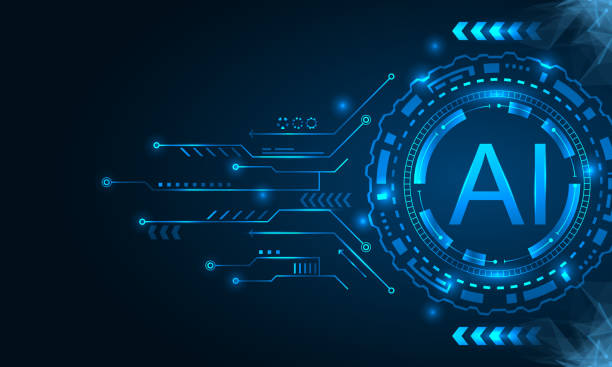
AI Assistants are currently used in many aspects of our daily lives.
These applications include:
- Time Management and Scheduling: AI assistants can help users manage schedules, remember appointments, and set alarms.
- Answering Questions and Providing Information: AI assistants can answer users’ questions on various topics and collect and present the required information from the internet.
- Controlling Smart Devices: AI assistants can control smart home devices such as lights, thermostats, and televisions.
- Online Shopping: AI assistants can help users find desired products, compare prices, and place orders.
- Customer Support: AI-based chatbots can answer customer questions, solve their problems, and provide necessary information.
- Education and Learning: AI assistants can help students learn course materials, complete assignments, and prepare for exams.
With the advancement of AI, it is expected that the applications of AI Assistants in daily life will become more widespread and diverse.
These assistants can help us perform various tasks faster, easier, and more efficiently.
For example, smart home assistants can learn our behavioral patterns and automatically change home settings based on our preferences.
Or virtual assistants can help doctors diagnose diseases and provide appropriate treatments by analyzing our medical data.
Pros and Cons of Using AI Assistants

Using AI Assistants has its own advantages and disadvantages.
The advantages of using these assistants include:
- Increased Productivity: AI assistants can help users perform various tasks faster and more efficiently, which leads to increased productivity.
- Reduced Errors: AI assistants can perform tasks with greater accuracy than humans, which leads to fewer errors.
- Easy Access to Information: AI assistants can quickly and easily gather and present the necessary information from the internet.
- Personalization: AI assistants can personalize their services based on user preferences by learning their behavioral patterns.
- 24/7 Availability: AI assistants are available around the clock and can help users anytime, anywhere.
The disadvantages of using AI Assistants include:
- Privacy Concerns: AI assistants need to collect and process users’ personal information to provide their services, which can raise privacy concerns.
- Dependence on Technology: Overuse of AI assistants can lead to dependence on technology and reduced human skills.
- Security Issues: AI assistants can be vulnerable to cyberattacks and compromise users’ personal information.
- Cost: Using some AI assistants may be costly.
Given the advantages and disadvantages mentioned, the use of AI Assistants should be done with care and awareness.
Users should be aware of potential risks and take necessary measures to protect their privacy and security.
| Pros | Cons |
|---|---|
| Increased Productivity | Privacy Concerns |
| Reduced Errors | Dependence on Technology |
| Easy Access to Information | Security Issues |
| Personalization | Cost |
Challenges in Developing and Implementing AI Assistants
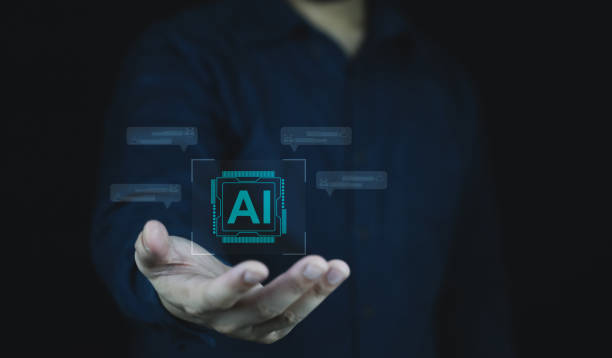
Developing and implementing AI Assistants faces several challenges.
These challenges include:
- Natural Language Processing: Understanding and processing human natural language is a complex challenge.
AI assistants must be able to understand human language with different accents, idioms, and ambiguities. - Machine Learning: AI assistants need to learn continuously to provide their services.
This learning should be done automatically and without human intervention. - Automated Reasoning: AI assistants must be able to reason and make decisions based on available information.
This reasoning must be logical and reliable. - Security: AI assistants must be protected against cyberattacks.
Hackers can steal users’ personal information or disable the system by infiltrating the AI assistant system. - Privacy: AI assistants need to collect and process users’ personal information to provide their services.
Developers of these assistants must ensure that users’ personal information is stored securely and confidentially.
To overcome these challenges, more research and development of new technologies in the field of artificial intelligence are needed.
Also, developers of AI Assistants should pay attention to ethical and social issues related to this technology.
For example, challenges in Natural Language Processing include recognizing accents, understanding idioms and language ambiguities, and translating languages.
Challenges in Machine Learning include collecting training data, selecting appropriate algorithms, and preventing overfitting.
Tired of losing business opportunities due to the lack of a professional corporate website? Worry no more! With Rasaweb’s corporate website design services:
✅ Your brand’s credibility and professionalism increase.
✅ You attract more customers and sales leads.
⚡ Get a free consultation now to get started!
What Does the Future Hold for AI Assistants?

The future of AI Assistants looks very bright and exciting.
With the advancement of AI, these assistants will be able to perform more complex tasks and play a more important role in our daily lives.
Some of the key trends in the future of AI Assistants include:
- Becoming Smarter: AI assistants will become smarter and more capable using more advanced machine learning algorithms.
They will be able to understand human language better, answer more complex questions, and perform tasks automatically. - Greater Personalization: AI assistants will be able to personalize their services more accurately based on the preferences and needs of each user.
They will be able to learn user behavioral patterns and provide more appropriate suggestions. - Integration with More Devices: AI assistants will be integrated with more devices.
They will be able to control smart home devices, cars, wearables, and other devices. - Expansion of Applications: The applications of AI Assistants will be expanded.
They will be used in various fields such as medicine, education, finance, and law.
In the future, AI Assistants will become intelligent and reliable collaborators for humans.
They will be able to help us perform various tasks faster, easier, and more efficiently, and improve our lives.
For example, in the near future, we will see self-driving cars controlled by AI assistants.
Or in hospitals, AI assistants will help doctors diagnose diseases and provide appropriate treatments.
How to Choose the Right AI Assistant

Choosing the right AI Assistant can be difficult because there are so many options available.
To choose the right assistant, you should pay attention to your needs and preferences.
Some of the factors to consider include:
- Application: What tasks do you want to perform using the AI Assistant? Do you need an assistant to manage time, answer questions, control smart devices, or perform other tasks?
- Compatibility: Is the AI Assistant compatible with the devices and platforms you use? Is it compatible with your mobile phone, tablet, smart speaker, or other devices?
- Language: Does the AI Assistant support the language you want? Is it fluent in Persian?
- Price: How much does the AI Assistant cost? Are you willing to pay a monthly or annual subscription fee?
- Privacy: What is the privacy policy of the AI Assistant? Is your personal information stored securely and confidentially?
By considering these factors, you can choose a suitable AI Assistant that meets your needs.
For example, if you are looking for an assistant to manage time and scheduling, you can use Google Assistant or Siri.
If you are looking for an assistant to control smart home devices, you can use Amazon Alexa.
Comparison Between Popular AI Assistants on the Market
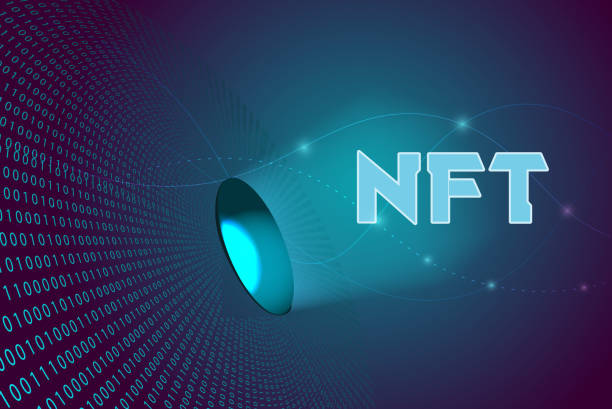
Currently, there are several popular AI Assistants on the market, each with its own features and capabilities.
Here, we compare some of these assistants:
- Google Assistant: Google Assistant is a powerful AI assistant that runs on various devices such as mobile phones, tablets, smart speakers, and cars.
This assistant supports the Persian language and can answer users’ questions, control smart devices, play music, and perform other tasks. - Siri: Siri is an AI assistant that runs on Apple devices such as iPhones, iPads, and Macs.
This assistant supports the Persian language and can answer users’ questions, send messages, make calls, and perform other tasks. - Alexa: Alexa is an AI assistant that runs on Amazon’s smart speakers such as Echo.
This assistant does not support the Persian language, but it can answer users’ questions, control smart devices, play music, and perform other tasks. - Cortana: Cortana is an AI assistant that runs on Windows devices such as computers and tablets.
This assistant does not support the Persian language, but it can answer users’ questions, set reminders, send messages, and perform other tasks.
Choosing the best AI Assistant depends on your needs and preferences.
If you are looking for a powerful and versatile assistant that supports the Persian language, Google Assistant or Siri are good options.
If you are looking for an assistant to control smart home devices, Alexa is a good option.
And if you use Windows devices, Cortana can be a suitable option.
Security and Privacy in Using AI Assistants

Security and privacy are among the most important issues to consider when using AI Assistants.
AI assistants need to collect and process users’ personal information to provide their services.
This information may include name, address, phone number, email, date of birth, interests, and other information.
Collecting and processing this information can pose risks to users’ privacy.
For example, users’ personal information can be misused, stolen, or shared.
To protect your privacy when using AI Assistants, you should take the following steps:
- Carefully read the privacy policy of the AI Assistant.
- Configure the privacy settings of the AI Assistant so that only essential information is collected.
- Avoid sharing sensitive information with the AI Assistant.
- Regularly review the activities of your AI Assistant and report any suspicious activity.
- Use a strong password for your AI Assistant account and change it regularly.
- Regularly update your AI Assistant software to benefit from the latest security patches.
| Security Measures | Description |
|---|---|
| Read the Privacy Policy | Check what information is collected and how it is used. |
| Privacy Settings | Limit unnecessary information. |
| Do Not Share Sensitive Information | Do not share personal and financial information. |
| Review Activities | Regularly review the activities of the assistant. |
In addition, you should be aware that the AI Assistant can be vulnerable to cyberattacks.
Hackers can steal users’ personal information or disable the system by infiltrating the AI Assistant system.
To prevent these risks, you should use a strong antivirus and regularly update your AI Assistant software.
Are you worried that your company’s outdated website is driving away new customers? Rasaweb solves this problem with modern and efficient corporate website design.
✅ Increases your brand’s credibility.
✅ Helps attract targeted customers.
⚡ Contact Rasaweb for a free consultation now!
Will AI Assistants Replace Human Jobs?

A common concern about AI Assistants is whether this technology will replace human jobs.
This is a complex question that does not have a definitive answer.
But it can be said that AI Assistants are likely to affect some jobs, but they will not necessarily replace all jobs.
In fact, AI Assistants can help humans perform their tasks and increase their productivity.
This technology can automate repetitive and tedious tasks and free humans to focus on more creative and strategic tasks.
However, some jobs are likely to be more at risk of being replaced by AI Assistants than others.
These jobs include repetitive, routine, and data-driven jobs.
For example, jobs related to data entry, information processing, and customer support may be more affected than others.
To reduce the risk of job loss due to the advancement of AI Assistants, you should keep your skills up to date and learn new skills that cannot be replaced by AI Assistants.
These skills may include critical thinking, problem-solving, creativity, and communication skills.
For example, the future of work may require specialists who can collaborate with AI assistants and use them to solve complex problems.
Or it may require specialists who can design and develop machine learning algorithms.
Important Tips for Effective Use of AI Assistants

To use AI Assistants effectively, you should keep the following points in mind:
- Define Your Goals: Before using an AI Assistant, determine what goals you want to achieve by using it.
- Learn How to Interact with the AI Assistant: AI Assistants usually work through voice or text commands.
Learn how to enter these commands correctly so that the AI Assistant can understand your requests. - Be Aware of the Capabilities of the AI Assistant: AI Assistants have different capabilities.
Be aware of these capabilities and use them fully. - Train the AI Assistant: The AI Assistant can improve its performance by learning from your interactions.
By providing feedback to the AI Assistant, help it better understand your needs. - Use the AI Assistant Responsibly: AI Assistants can be a powerful tool, but you should use them responsibly.
Avoid sharing sensitive information with your AI Assistant and do not use it to engage in illegal activities.
By following these tips, you can use AI Assistants effectively and increase your productivity.
For example, by using AI assistants you can schedule your meetings, manage your emails, and set reminders.
Or by using AI assistants you can learn new skills and keep your knowledge up to date.
Frequently Asked Questions
| Question | Answer |
|---|---|
| What is an AI assistant? | An AI assistant is a software program that uses artificial intelligence to perform various tasks for users, such as answering questions, setting reminders, playing music, and managing calendars. |
| What are some of the most famous AI assistants? | Some of the most famous AI assistants include Apple’s Siri, Google Assistant, Amazon’s Alexa, and Microsoft’s Cortana. |
| How does an AI assistant work? | These assistants use natural language processing (NLP) to understand the user’s voice or text commands, and machine learning to improve performance and personalize responses. |
| What are the main uses of AI assistants? | Main uses include setting alarms and reminders, playing music and podcasts, answering general questions, sending messages, making calls, controlling smart home devices, and providing weather or traffic information. |
| Can AI assistants speak in different accents? | Yes, many modern AI assistants have the ability to recognize and produce speech in various accents and languages. |
| What are the differences between an AI assistant and a chatbot? | AI assistants are usually more comprehensive and can perform various tasks beyond answering text questions (such as controlling devices). Chatbots are mostly designed for text conversations on websites or messaging apps. |
| Is using an AI assistant safe? | Companies are trying to ensure data security, but there are concerns about privacy and the storage of voice data. Users should review their privacy settings. |
| What will the future of AI assistants look like? | In the future, AI assistants are expected to be smarter, more predictive, and more integrated with daily life and other devices, and will be able to perform more complex tasks. |
| How can I activate an AI assistant? | They are usually pre-installed on smartphones and smart home devices. You can activate them by saying “Hey Siri”, “Ok Google” or “Alexa” and then give your command. |
| Can an AI assistant help me learn? | Yes, it can help in learning by providing information, defining words, translating texts, and even solving math problems. It can also play educational podcasts for you. |
And other services of Rasa Web Advertising Agency in the field of advertising
Smart Marketing Automation: An exclusive service for online growth based on custom programming.
Smart Digital Branding: An exclusive service for growing customer acquisition based on precise audience targeting.
Smart Brand Identity: A creative platform to improve website visits by designing an attractive user interface.
Smart Google Ads: A professional solution to improve SEO ranking by focusing on optimizing key pages.
Smart UI/UX: A creative platform to improve campaign management with precise audience targeting.
And more than hundreds of other services in the field of internet advertising, advertising consulting and organizational solutions
Internet Advertising | Advertising Strategy | Advertorial
Resources
Latest Views on Artificial Intelligence (Gartner)
,Stanford Institute for Human-Centered AI (HAI)
,OpenAI Website
,Artificial Intelligence – Latest Insights (McKinsey)
? With Rasaweb Afrin, take your business to the peak of success in the digital world. With comprehensive digital marketing services including exclusive website design, advanced SEO and targeted advertising campaigns, we pave the way for your growth.
📍 Tehran, Mirdamad Street, next to Central Bank, South Kazerun Alley, Ramin Alley No. 6
“`

